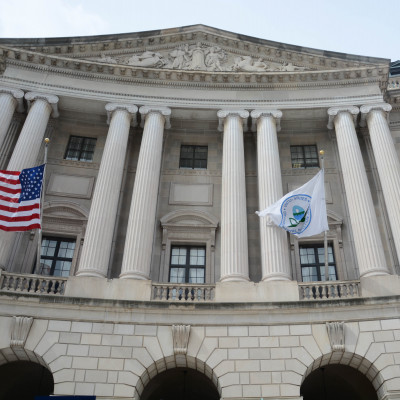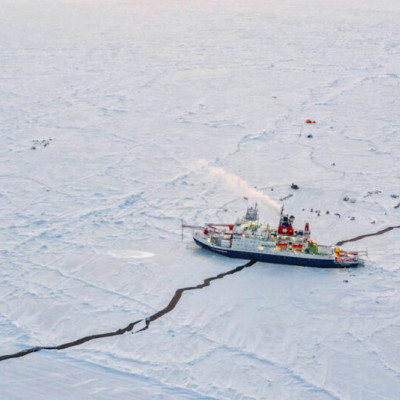July 31, 2023
July 2023 at Policy Integrity
- EPA Rolls Out New Emissions Standards for Cars, NHTSA Updates CAFE Standards
- Amicus Brief in Case Against Alaska Drilling Project
- Department of Energy Weighs Special Designation for New Transmission Lines
- Commentary on Canada’s Updated Climate Metrics
- More From This Month
-

EPA Rolls Out New Emissions Standards for Cars, NHTSA Updates CAFE Standards
EPA recently proposed an update to its emissions standards for light- and medium-duty vehicles, a category which includes most personal cars. Given that transportation is the largest contributor to U.S. greenhouse gas emissions, these standards represent one of the key tools EPA has for reducing pollution that contributes to climate change and harms public health. In comments to the agency, we explained that the proposed rule fits squarely with how EPA has previously carried out its pollution regulation responsibilities. We also commended the agency’s thorough and robust analysis of the rule’s costs and benefits, including counting the value of fuel savings as a benefit. Our major recommendation was that EPA adopt a more stringent standard if it would result in greater net benefits.
Separately, last week the National Highway Traffic Safety Administration (NHTSA) released a proposed rule updating the Corporate Average Fuel Economy (CAFE) standards for vehicles sold in Model Year 2027 and beyond. As we highlighted in a press statement, the proposal will decrease harmful vehicle pollution through reductions in oil usage, save consumers money on gas, and help consumers close the so-called ‘efficiency gap’ between the fuel efficiency consumers want and the fuel efficiency automakers offer.
-

Amicus Brief in Case Against Alaska Drilling Project
Indigenous and environmental groups are taking to court to challenge the Bureau of Land Management's (BLM) approval of ConocoPhillips’ Willow Project, the largest Alaskan oil development in 20 years. Policy Integrity filed an amicus brief in this case arguing that the U.S. District Court for the District of Alaska should, if it rules in favor of the plaintiffs’ substantive claims, overturn BLM’s approval of the project. Even under BLM’s estimates, the Willow Project will cause substantial climate damage to the tune of $18 billion. These estimates are also very likely understated, as the agency relied on outdated assumptions about how the project would affect consumption patterns and about the quantifiable costs of pollution. Finally, BLM’s analysis of the project’s economic benefits ignores the fact that it will displace other energy production (both fossil fuel and renewable) across the United States.
-

Department of Energy Weighs Special Designation for New Transmission Lines
The Department of Energy (DOE) issued a Request for Information regarding its program to designate National Interest Electric Transmission Corridors in areas with a need for new electric transmission capacity. Once a corridor has been designated, transmission developers gain potential access to federal funding programs and, in certain cases, the ability to apply to the Federal Energy Regulatory Commission for “backstop-siting authorization,” which can include eminent domain authority. We submitted comments to DOE recommending that the agency require additional information from applicants: how a project in a designated corridor would cause power plants to increase or decrease emissions in response to the new transmission capacity and how environmental justice communities would be affected. We also recommended that DOE review applications in groups to best account for the interconnected nature of the electric grid. Finally, we recommended that DOE standardize certain modeling techniques and inputs to increase the accuracy of developers’ applications and to enable DOE to conduct apples-to-apples comparisons.
-
_400_400_90_c1.jpeg)
Commentary on Canada’s Updated Climate Metrics
A new commentary piece by our Senior Attorney, Max Sarinsky, discusses Canada's update to its “social cost of carbon,” the valuation tool used to assess the economic damages caused by greenhouse gas emissions. The piece explains that Canada recently adopted the Biden Administration's revised estimates of the social cost of carbon, which are significantly higher than previous estimates used by both the U.S. and Canadian governments. These updated estimates reflect the latest climate science and economic data showing that the impacts of climate change will be far more severe than previously thought. While some Canadian politicians have misleadingly conflated the social cost of carbon with a carbon tax, the article clarifies that the social cost of carbon is simply a valuation tool, not a tax paid by polluters. Sarinsky also argues that Canada's update demonstrates the importance of international cooperation on climate policy.
-
More From This Month
- We submitted comments to EPA on its proposal to grant the State of Louisiana primary enforcement responsibility (primacy) over Class VI injection wells used for geologic carbon sequestration.
- Senior economist Dr. Christoph Graf presented a paper titled “Offshore grid planning with coordinated investment in generation, storage, and transmission” at the 18th IAEE European Conference in Milan.
- Dr. Hiroshi Matsushima, an economic fellow at Policy Integrity, authored an article for EurasiaReview which outlined a new era of economic competition between the U.S. and China in the electric vehicle market.
- Senior Attorney Max Sarinsky weighed in on the limited legal risk associated with CEQ’s proposed reforms to NEPA.
We are currently seeking applicants for an attorney or senior attorney with a primary focus on climate, clean air, and environmental regulations. This application will remain open until the position is filled.
